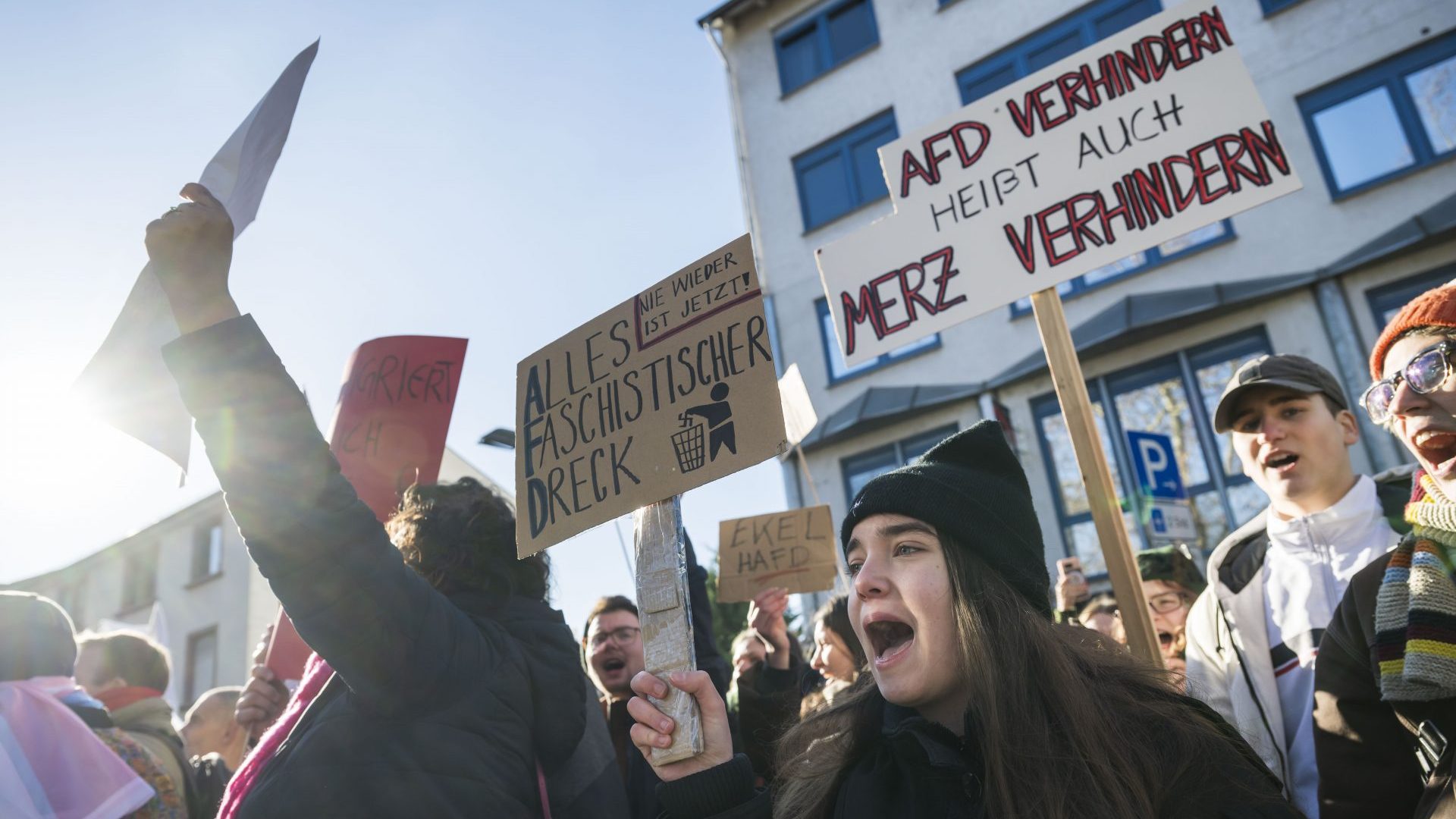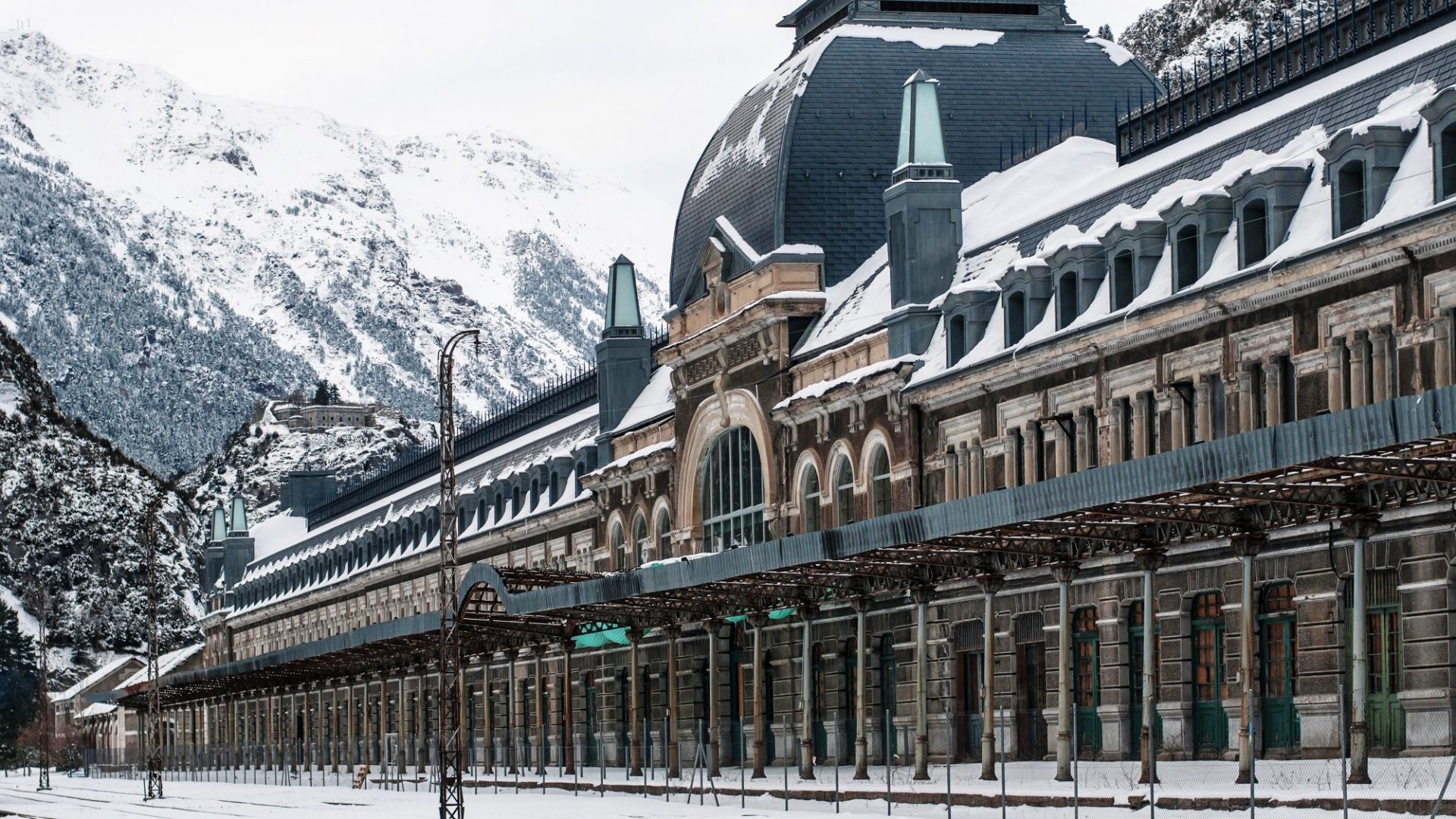Whatever you’ve heard about the “Brandmauer” (firewall) against the AfD – let me add a neglected angle: the AfD’s rise is the best thing that could have happened to the Social Democrats and the Greens.
Do the maths. Our electoral system and outcome offers no chance to any single party to rule alone. But with more than 20% of the votes going to AfD, the CDU (at 28-30%) is effectively shackled to the left. As long as the Christian Democrats refuse to collaborate with the AfD, they guarantee the left’s place in government – despite a majority of voters leaning (far) right.
Tricky, isn’t it?
CDU chancellor candidate Friedrich Merz, 68, will not form a cabinet with the AfD, rightly recognising their ultimate goal is to annihilate his moderate right wing party. Look at Italy and France.
Merz had insisted last autumn he didn’t want to campaign on migration. And why would he? With the country in its longest recession for 20 years and people trusting the CDU more than any other party on “the economy, stupid”, why risk stepping into the minefield of illegal immigration, where any moderate party struggles against the extremists?
The not always exact science of public opinion research holds one golden rule: Don’t talk about illegal migration, fix it – otherwise voters flock to the far right.
But after the deadly knife attack by a 28-year old Afghan on a kindergarten group in Aschaffenburg, Merz opted for action – legislative action – in place of the concerned words that Germans have heard too often in recent years.
As in previous cases, the attacker should have been deported long ago. Why wasn’t he? Because the Dublin-scheme, the law devised to return asylum seekers to their first point of entry into the EU, is dysfunctional. If that law had been followed, in 2024 10,402 migrants should have been returned to Italy. The total number deported was in fact three.
Chancellor Olaf Scholz, in full campaign mode, was suddenly “outraged“ about the law enforcement deficit. But it’s not as if civil servants are twiddling their thumbs. They are drowning in systemic failures, including overwhelmed accommodation, slow processing, a mental health crisis and a stretched judicial system. Add this to a growing sentiment among the less wealthy that more resources go to “them” than to “us”, and you see why AfD is thriving. Many have lost faith in the traditional parties’ ability to fix things.
To keep AfD from gaining even more votes after the brutal crime in Bavaria, Merz took a decision that proved damaging for his reputation. His own party is torn between calling it bold and strategically flawed. Whether it will damage his election results isn’t clear yet.
He courted the “demokratische Mitte” – the political centre – for his bill to limit illegal immigration, but also said that without their support, he didn’t care where the votes came from. The result? For the first time in German history, a (non-binding) parliamentary motion was passed solely thanks to votes from the far right. The AfD exulted: “A new era begins here and now. Led by the new AfD forces. You may follow, Mr Merz, if you still have the power.”
The backlash was swift. Prominent Jewish CDU-member Michel Friedman quit the party. Thousands (and not just Antifa) took to the streets, no one talks about the economy anymore and the left is energised, although mostly those who wouldn’t have voted conservative anyway.
Even Angela Merkel, whose popularity is still bigger than Merz’s may ever be, especially among women, emerged from her self-imposed abstinence from daily politics to call his move a “mistake”.
A low blow, many felt, given that it had been Merkel’s welcome policy and lack of solutions afterwards that had created the current situation which Merz is, however clumsily, trying to solve.
A dark shadow now hangs over this election, there is even talk among SPD and Greens of entering a CDU-led coalition, but not under chancellor Merz.
But there’s more to it. An artist whose grandparents fled the Nazis told me: “I believe that Merz will not cooperate with the far right. But he’s 68. What about the next generation of CDU leaders in 15 years?” My reply: “If they don’t turn this around in the next four years, it soon won’t be the CDU choosing partners, it’ll be AfD. Look at Austria.”
In far-right circles, they’re already joking about election year 2033.




